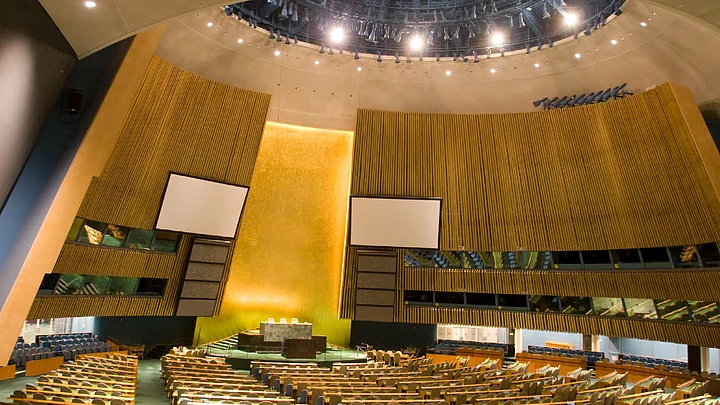At a United Nations (UN) meeting on Wednesday, 10 August, China blocked a proposal by the United States and India to blacklist Jaish-e-Mohammed's Abdul Rauf Azhar, an action which, if passed, would subject him to asset freezes, travel bans, and arms embargoes.
He is the brother of Masood Azhar, the founder and leader of the Pakistan-based terror group.
Abdul Rauf Azhar was a senior leader of the Jaish-e-Mohammed for several years; he was the acting leader in 2007 and one of JeM's most senior Indian commanders.
In 2008, the US stated that Azhar was "assigned to organise suicide attacks in India. He was also involved with JeM's political wing and has served as a JeM official involved with training camps."
The JeM was responsible for numerous prominent terrorist attacks in India, like the 2001 attack on Parliament and the 2016 attack on the Pathankot Air Force base.
In his statement to the UN, Indian Ambassador Ruchira Kamboj said that China must stop placing holds on requests made at the UN without justification. He further said that China's credibility on the global stage was dwindling as a result.
China Has Done This Before
This is not the first time that China, a strong ally of Pakistan, has put a last-minute blacklisting proposal on hold for a Pakistani terrorist; it did the same with Abdul Rehman Makki under the 1267 Al-Qaida Sanctions Committee in June 2022.
Makki is recognised as a terrorist by the US and is the brother-in-law of Hafiz Saeed, the Lashkar-e-Taiba head and orchestrator of the 26/11 Mumbai attacks.
Additionally, in May 2019, India scored a massive win when JeM chief Masood Azhar was recognised as a global terrorist. However, China, being a veto-wielding member of the UN Security Council, was the only country holding out. It is important to note that the council acts in consensus.
India had made a proposal to nominate Azhar as a terrorist in 2009, and then moved the proposal with the US, UK, and France in 2016. In 2017, a similar proposal was approved by these countries, and yet China blocked the idea from being taken into action by the sanctions committee on numerous instances.
Kamboj added, "Double standards and continuing politicization have rendered the credibility of the Sanctions Regime at an all-time low. We do hope that all members of the UNSC can pronounce together in one voice, sooner than later, when it comes to this collective fight against international terrorism."
(With inputs from PTI.)
(At The Quint, we question everything. Play an active role in shaping our journalism by becoming a member today.)
